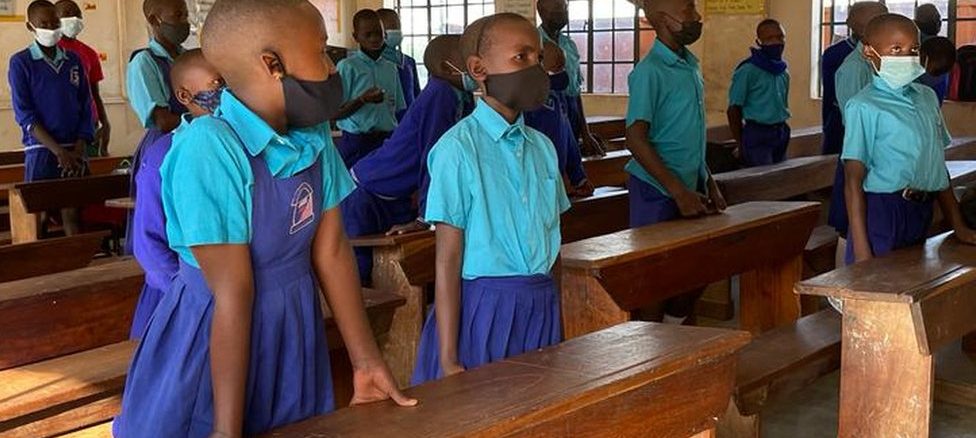
Schools in Uganda have reopened to students this week, ending the longest school disruption due to the COVID-19 pandemic anywhere in the world.
Schools have been fully or partially shut for more than 83 weeks, according to figures from the U.N. cultural agency.
This compares with the OECD (Organisation for Economic Co-operation and Development) countries average of 101 days, roughly just over three months.
Uganda’s education closure is thought to have affected more than 10 million learners. The country first shut down its schools in March 2020, shortly after the first coronavirus case was confirmed on the African continent.
Some classes were reopened to students in February 2021, but a total lockdown was imposed again in June as the country faced its first major surge of the virus.
Unlike in Ireland and indeed most other counties in the world, virtual learning was not an option in most schools in the country, leaving children uneducated for over a year.
The charity ‘Save the Children’ has warned that a wave of drop-outs is expected from children as students who have already fallen behind will struggle to keep up.
To combat this, the charity has launched a ‘catch up club’ aimed to accelerate the recovery of lost learning during the closure of schools.
The clubs will assess children and teach them at the required level to help them regain literacy and other learning, with child protection support and cash assistance for families struggling to send them to school.
In Ireland, full school closures were an average of at least 96 days (primary), 91 days (lower second-level) and at least 72 days (upper second level).
Jessica Woodlock



